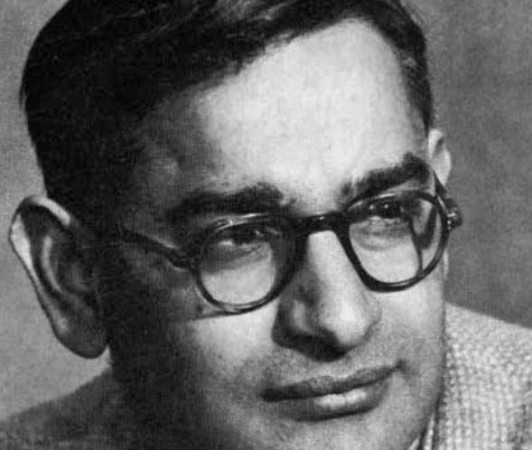
Har Gobind Khorana, a distinguished biochemist born in 1922, was renowned for his groundbreaking work on the genetic code and his invaluable contributions to DNA research. His remarkable achievements in understanding the structure and function of DNA earned him the prestigious Nobel Prize in Physiology or Medicine, solidifying his place as one of the most influential figures in the field of molecular biology.
Early Life and Education
Har Gobind Khorana was born on January 9, 1922, in Raipur, a small village in present-day Pakistan. Despite facing financial challenges, he was determined to pursue his passion for science. Khorana's academic brilliance shone through as he excelled in his studies, earning a scholarship to Punjab University.
Immigrating to the United States
In pursuit of higher education, Khorana moved to England and later to the United States. In 1960, he became a naturalized American citizen and began working at the University of Wisconsin-Madison. It was during his time here that he made significant strides in his research.
Cracking the Genetic Code
Khorana's most groundbreaking work came in the early 1960s when he successfully deciphered the genetic code. He demonstrated how the sequence of nucleotides in DNA (adenine, thymine, guanine, and cytosine) encodes the specific sequence of amino acids in proteins. His research laid the foundation for understanding how genes transmit specific traits from one generation to another.
The Nobel Prize in Physiology or Medicine
In recognition of his pioneering contributions to genetics and molecular biology, Har Gobind Khorana was awarded the Nobel Prize in Physiology or Medicine in 1968, alongside Robert W. Holley and Marshall W. Nirenberg, who also played crucial roles in deciphering the genetic code.
Contributions to DNA Research
Khorana's achievements did not end with the decoding of the genetic code. He continued to make significant contributions to DNA research, exploring the role of nucleotides and their functions in gene expression and regulation. His work shed light on the complexities of DNA and its importance in various cellular processes.
Academic Legacy and Honors
Throughout his illustrious career, Khorana held several prestigious academic positions, including the Alfred P. Sloan Professor of Biology and Chemistry at the Massachusetts Institute of Technology (MIT). His research and discoveries earned him numerous awards, accolades, and honorary degrees from esteemed institutions worldwide.
Influence on Modern Biology
The research conducted by Har Gobind Khorana not only advanced our understanding of genetics but also had a profound impact on the field of biotechnology. His groundbreaking work laid the groundwork for gene synthesis, which has become a cornerstone of modern genetic engineering and synthetic biology.
Har Gobind Khorana's unwavering dedication to unraveling the mysteries of DNA and the genetic code has left an indelible mark on the scientific community. His contributions to molecular biology have paved the way for advancements in genetic research and gene synthesis. Khorana's legacy continues to inspire aspiring scientists and researchers worldwide to push the boundaries of knowledge and make groundbreaking discoveries.
The Sweet Success of Sugar: Popular Beauty Brand in India
Rupee Steady Amid Global Uncertainties: Traders Remain Cautiously Optimistic in Forex Market